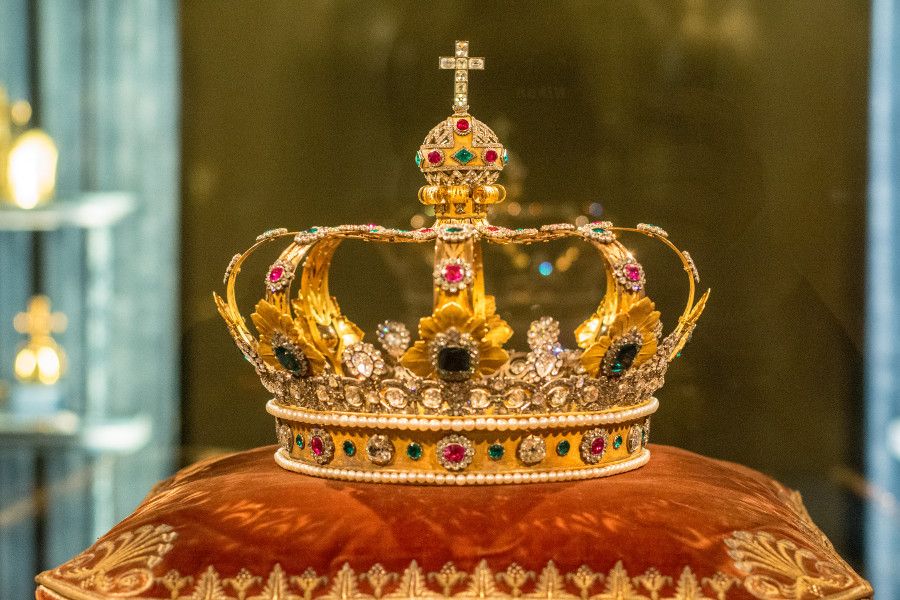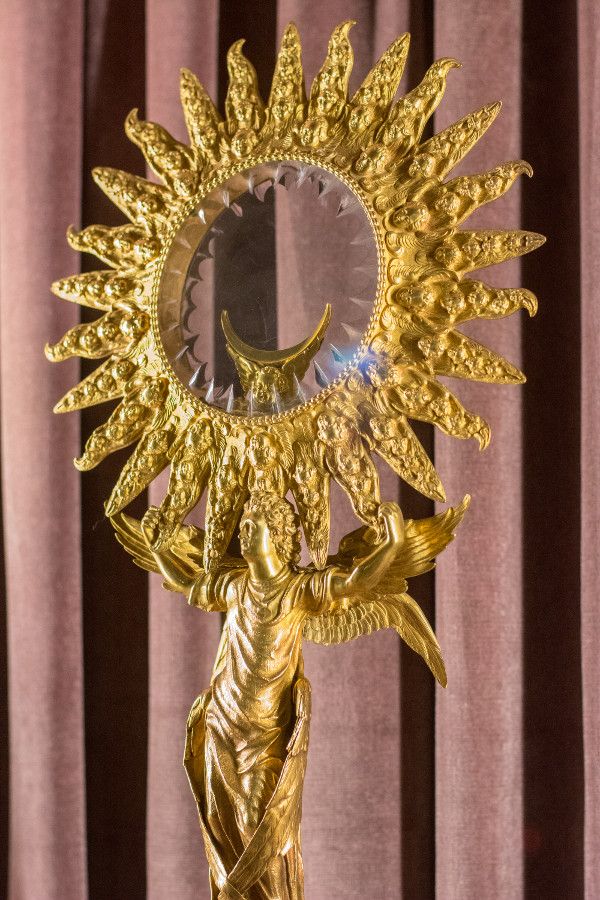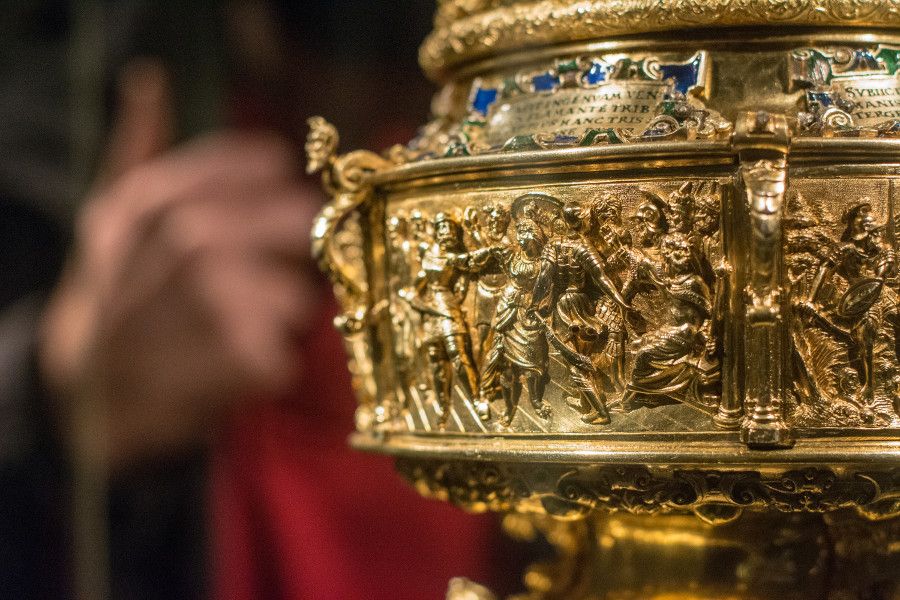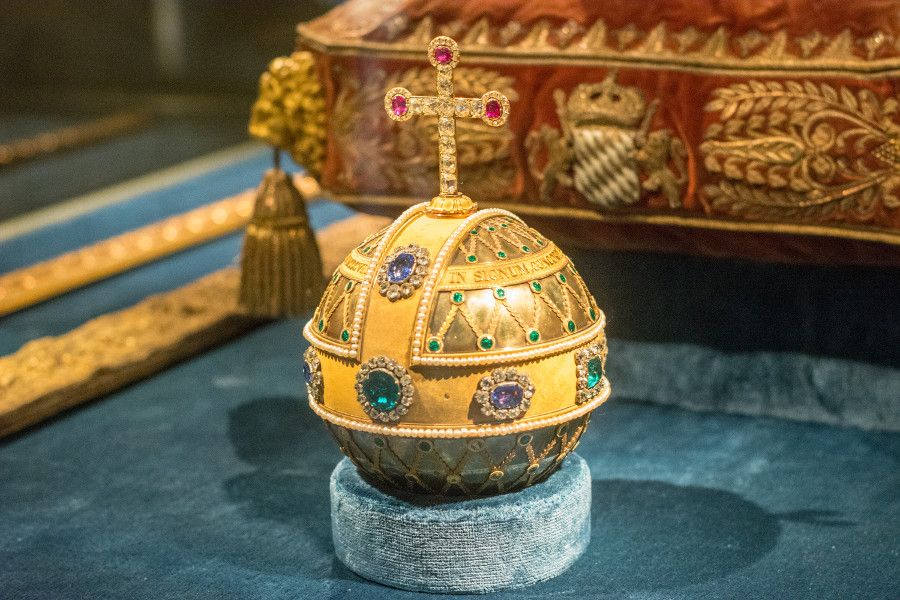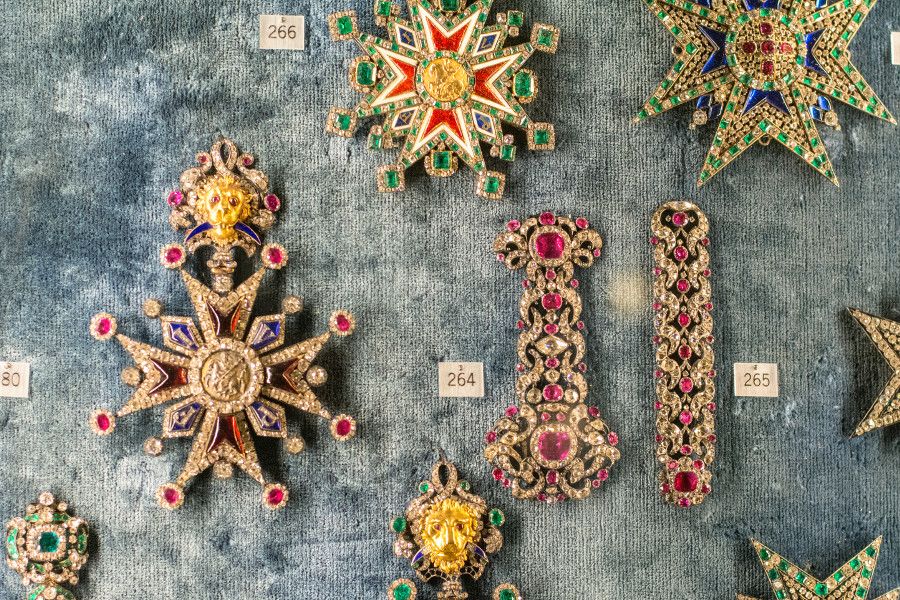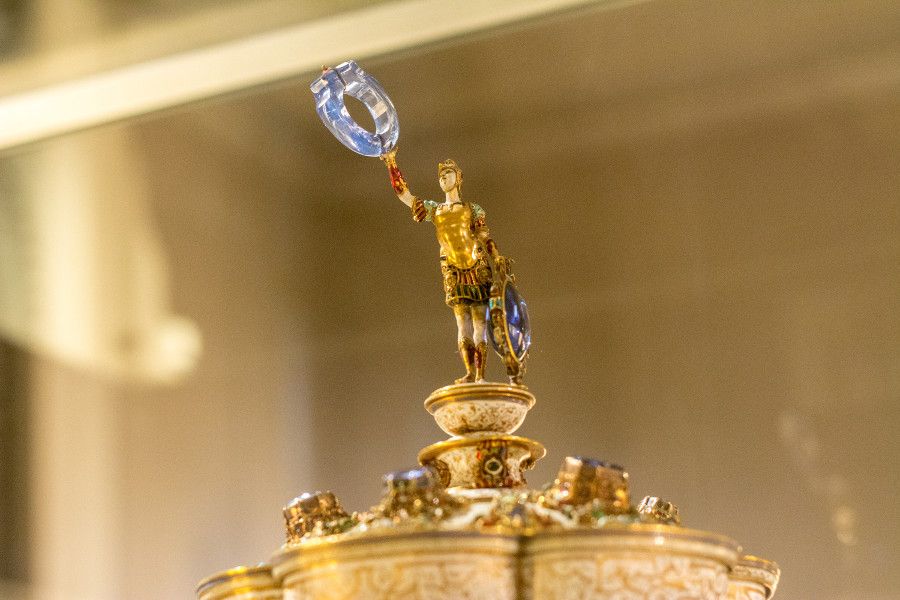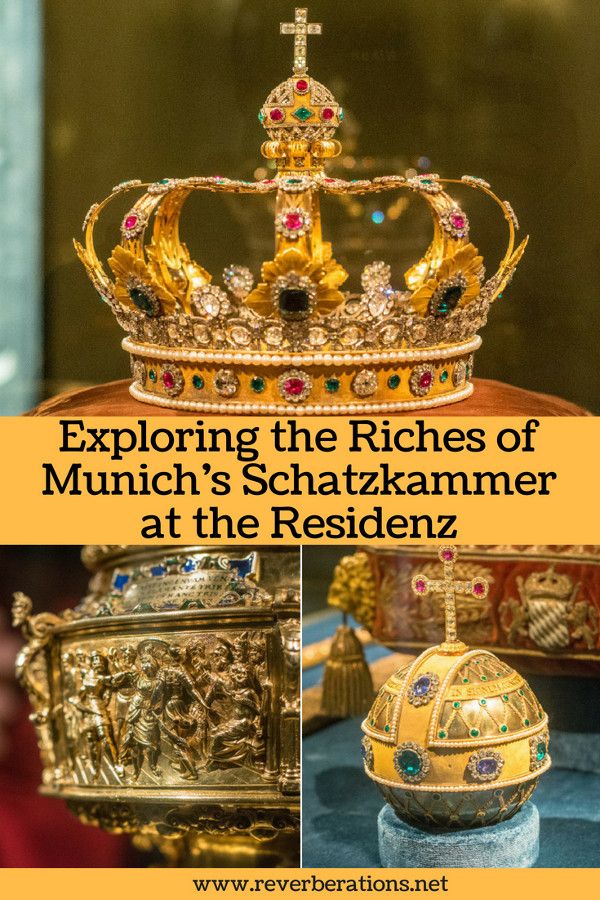If you thought the riches of Munich, Germany are to be found in a Biergarten then you haven’t yet visited the city’s Treasury or Schatzkammer. The city’s gold isn’t just in liquid form! Housed in downtown Munich within the walls of the massive Munich Residenz compound, you can find priceless items that belonged to the kings and queens of Bavaria. These artful objects range from incredible jewels to masterfully crafted pieces.
History of the Munich Residenz
Opened to the public in 1920, the Munich Residenz served as the royal palace for the Wittelsbachs, the family that reigned in Bavaria for nearly 800 years. The earliest parts of the building date to 1385. Like much of Munich and Germany in general, large portions of the building were destroyed during World War II. It was, however, rebuilt following the war. The intent was to return it as close as possible to what it once was. It has been open to the public since 1920.
Today there are three separate museums that you can visit. The museums are the Treasury or Schatzkammer, Cuvilliés Theatre, and the Residenz Museum.
Read More: Munich Residenz Travel Guide
History of the Munich Treasury (Schatzkammer)
You can thank Duke Albrecht V of the Wittelsbach dynasty for the Treasury, or Schatzkammer. In his will, from the year 1565, he stated that “hereditary and dynastic jewels” were a part of a single collection that could not be sold.
The collection continued to expand over the centuries. A new royal insignia began being integrated into pieces with the creation of the Kingdom of Bavaria in 1805.
The ten galleries in which the collection can now be found are not the original location of the Treasury. A specially created room, now the Porcelain Cabinet, was built for the pieces in 1731. In 1897, the collection opened to the public in a new location that is now the Residenz’s ticket office and gift shop.
As you might expect, parts of the Residenz were destroyed or damaged during World War II. By 1958 the Treasury reopened (in yet a new location, where you’ll find it today) to the public along with a limited portion of the Residenz. Since then the palace has been completely renovated and opened to the public.
Visiting the Schatzkammer
When you enter the Schatzkammer, you’re entering ten galleries of, quite simply, works of art. Included in the collection on display is the crown of the Bavarian kings, countless jewel-encrusted medals, chalices, and relics. There are also more artist pieces such as clocks, religious art, and decorations. From gold to glass, jewels, and even ivory, the collection is quite wide-ranging in terms of style and medium.
Even with so much on display at the Schatzkammer, visitors can easily get through the entire collection within an hour or two.
Schatzkammer Tickets & Tips
Each of the three museums (Schatzkammer, Cuvilliés Theatre, and the Residenz itself) within the Residenz complex require a separate ticket. You can buy an individual ticket for a specific museum or a joint ticket for two or more of the museums.
If you plan to visit several of the palaces and buildings under the care of the Bavarian Palace Department, you can potentially save money buy purchasing a palace pass.
Read More: Save Money Traveling in Bavaria With These Simple Tips
Admission to the Schatzkammer also includes an audio guide free of charge. You can pick that up on your way into the galleries.
It’s also important to note that there are strict rules on the sizes of bags that you may take into the Residenz and the Schatzkammer. These rules are enforced. Bags must be no larger than 13.8 x 11.8 x 4.8 in (35 x 30 x 12 cm). There is a coat check where you can leave bulky items free of charge.
Getting There
Munich Residenz is in downtown Munich on Odeonsplatz, just a stone’s throw from Marienplatz. The most convenient way to get to the Residenz Munich is via public transit. The closest stops are Marienplatz by S-Bahn; Marienplatz or Odeonsplatz by U-Bahn; Odeonsplatz by bus; and Nationaltheater by tram.
The Residenz museum does not have its own parking lot. There is a limited amount of street parking available as well as a parking garage beneath the Nationaltheater.
All opinions, as well as all photos, are my own.
